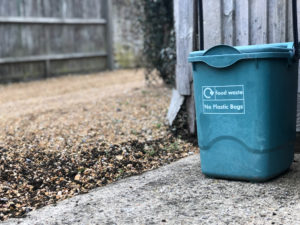Buy Food Grown or Processed Locally
Eating local produce and meat improves the local economy, reduces transportation emissions, and leads to greater food security.
Did you know the average piece of produce travels over 1,500 miles to get from a farm to your grocery store? That means your fruit could be picked weeks or even months before you consume it. Alternatively, local food can be better for your health and the environment. Locally grown foods often have higher nutritional content since the food is ripened naturally instead of ripening artificially as it travels long distances. While your local farm may not be certified as organic (farmers must pay to become certified organic), local farmers may be using organic or low-pesticide farming practices.
Eating local is also good for the environment. Since food does not need to travel as far, greenhouse gas emissions are reduced. Local farms also help improve local air quality by increasing the green space around our community which may otherwise by used for development. Buying from local farmers that use low-tillage practices also reduces carbon in the air and can help reduce local air pollution. Carbon sequestration increases when more crop residues remain on the field, increasing the volume of organic matter kept in the soil. Supporting local food and farmers also supports our local economy.
In addition to individuals or households buying local, local businesses and institutions can purchase their food locally, providing greater security and options for local producers. Duluth has a number of local businesses that buy local food such as the Duluth Grill and Sara’s Table. If more businesses committed to supporting local producers, the faster we could reach our community goal of an ecologically sound food system infrastructure that enables us to grow, process, and distribute the food our community residents and businesses need.
To learn more about where you can buy local food, see the Locally Grown Food section of the Community Initiatives page.
Reference: Pirog et al. (2001). Food, Fuel, and Freeways. Iowa State University.
Did you take this action? Report it!
Help us show our collective community impact by reporting that you took this action.
